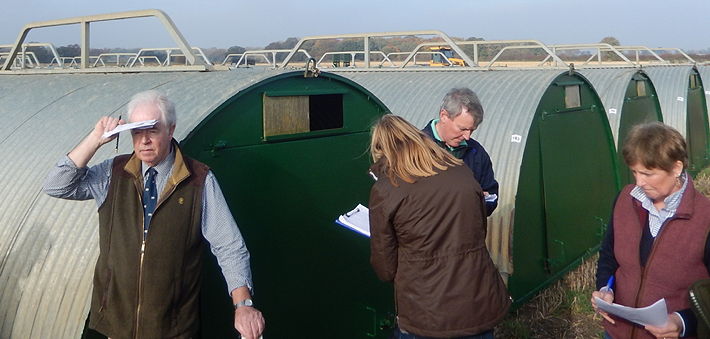Despite all the doom and gloom being suffered by the pig industry, one or two signs of slight easing in the chronic financial situation are starting to emerge, but in many cases these are far too late in the day to rescue herds which are being liquidated.
The SPP went up by 3.19p and now stands at 175.95p and although earlier in the week German prices were indicating some sharp falls, these failed to materialise and in the main EU pig meat prices remain at similar low levels with the influential German producer price standing at 1.80 EUR, which works out at 153p/kg in our money.
It was refreshing to see Cranswick lifting their weekly price last week by 10p to 180p/kg, followed by Karro adding 5p to their weekly price which now stands at 173p/kg and is a step in the right direction with most of the big players’ weekly prices between 173p – 190p/kg, but still well adrift of Red Tractor COP levels which are in the 214p/kg region based on up to date prices.
Better news also is that the average slaughter weight for pigs last week has eased to just over 91kg and one or two abattoirs commented that they are starting to see numbers tighten up as earlier herd clearances filter through the system.
Hopefully spot bacon prices of around 150p – 160p/kg might also firm up as the four day Jubilee holiday approaches if this is matched by BBQ demand and good weather.
However, cull sow prices continue to reflect the static level of European pig meat prices with most cull sows still traded for export in the 63p-67p/kg range and plenty of numbers still available as more herds head for the exit door.
As far as the Euro is concerned, this is marginally firmer at 85p compared with 84.08p a week ago, but not enough of an upward path to persuade buyers to put any more money on the table.
Weaner prices are also going in the right direction if you are a producer, but in many cases they are still too dear for finishers to get a return.
Although once again no 7kg averages have been published by the AHDB, batches of farm assured 7kg weaners have been selling in the £42 – £44/head range in some cases.
Feed ingredient prices also took a dip mid week following news of a possible deal to allow Ukrainian exporters to shift blockaded proteins and cereals but the Russians have indicated that they are only prepared to agree to this if sanctions are relaxed, which seems a fairly long shot at present.
As a result, the UK weekly ex farm feed wheat spot average dropped by almost £20/t to stand at £306.50/t and with the prospect of a reasonably good UK harvest, this could also help UK pig producers.
Futures prices also provide a very useful barometer of what might follow with feed wheat trading for July delivery at around £323/t and for September at £312/t. Feed barley values have also eased back with September deals agreed at £290/t compared with £323/t a week ago.
Protein values have to some extent hardened with Hipro soya for June – October delivery at £476/t /t. Rapemeal has been traded at £358/t which compares with £393/t a week ago and is a step in the right direction.
And finally, as if there are not enough challenges for the pig industry to face, the latest Germany African Swine Fever outbreak has taken a giant 500km step in a westerly direction and has almost reached the French border, which is being met with alarm at a time when HM Government in their wisdom have delayed inspections of animals and meat entering our shores and with large volumes of imported pig meat already hitting the UK market ASF in the UK could sadly become a reality.
This outbreak comes at a time when the Germans were hoping to regain their lost export markets and is a reminder for border controls in this country to be tightened up as it would slam the door on our chances to supply the rising pig meat market in the Philippines, with carcass prices of up to £4/kg due to ASF outbreaks in the southern hemisphere.
In addition to Putin, ASF remains a huge threat to our domestic pig industry along with everything else that needs to be faced!




